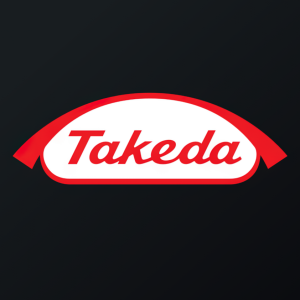Takeda Announces U.S. FDA Grants Priority Review for New Drug Application for Mobocertinib (TAK-788) as a Treatment for EGFR Exon20 Insertion+ Metastatic Non-Small Cell Lung Cancer
Takeda Pharmaceutical Company Limited (TSE:4502/NYSE:TAK) (“Takeda”) today announced that the U.S. Food and Drug Administration (FDA) has granted priority review for the company’s New Drug Application (NDA) for mobocertinib (TAK-788) for the treatment of adult patients with epidermal growth factor receptor (EGFR) Exon20 insertion mutation-positive (insertion+) metastatic non-small cell lung cancer (mNSCLC), as detected by an FDA-approved test, who have received prior platinum-based chemotherapy. Mobocertinib is the first oral therapy specifically designed to selectively target EGFR Exon20 insertion mutations.
“Patients with EGFR Exon20 insertion+ mNSCLC face considerable challenges, as current treatment options provide limited benefit, resulting in poor survival outcomes,” said Christopher Arendt, head, Oncology Therapeutic Area Unit, Takeda. “We are excited to be one step closer to offering mobocertinib as an effective oral therapy for NSCLC patients with EGFR Exon20 insertions that have received prior platinum-based chemotherapy and look forward to continuing conversations with regulatory agencies in the U.S. and around the globe.”
The NDA for mobocertinib is primarily based on results from the Phase 1/2 trial, which is evaluating the safety and efficacy of oral mobocertinib in patients with mNSCLC. The application was submitted under the FDA’s accelerated approval program. The review is being conducted under Project Orbis, an initiative of the FDA Oncology Center of Excellence (OCE), which provides a framework for concurrent submission and review of oncology products among international partners.
Takeda has established an Expanded Access Program (EAP) (NCT04535557) for patients in the U.S. who may be eligible to receive access to mobocertinib during the review of the NDA. Additional information about Takeda’s EAP is available here.
About Mobocertinib (TAK-788)
Mobocertinib is an investigational, first-in-class, oral tyrosine kinase inhibitor (TKI) specifically designed to selectively target epidermal growth factor receptor (EGFR) Exon20 insertion mutations. In 2019, the U.S. FDA granted mobocertinib Orphan Drug Designation for the treatment of lung cancer with HER2 mutations or EGFR mutations including Exon20 insertion mutations. In April 2020, mobocertinib received Breakthrough Therapy Designation from the FDA for patients with EGFR Exon20 insertion+ metastatic non-small cell lung cancer (mNSCLC) whose disease has progressed on or after platinum-based chemotherapy. In October 2020, mobocertinib was designated as a Breakthrough Therapy in China by the Center for Drug Evaluation (CDE) for locally advanced or metastatic NSCLC patients with EGFR Exon20 insertion mutations who have been previously treated with at least one prior systemic chemotherapy.
About the Phase 1/2 Trial
The Phase 1/2 trial aims to evaluate the safety, pharmacokinetics and anti-tumor activity of oral mobocertinib in patients with non-small cell lung cancer (NSCLC). The trial is comprised of a Phase 1 dose-escalation, evaluating mobocertinib as a monotherapy and in combination with chemotherapy, several expansion cohorts and an extension cohort in patients with epidermal growth factor receptor (EGFR) Exon20 insertion+ metastatic NSCLC (mNSCLC).
The platinum-pretreated population efficacy analysis investigated 114 patients with EGFR Exon20 insertion+ mNSCLC who received prior platinum-based therapy in the Phase 1/2 trial and were treated with mobocertinib at the 160 mg once daily dose.
About EGFR Exon20 Insertion+ mNSCLC
Non-small cell lung cancer (NSCLC) is the most common form of lung cancer, accounting for approximately







